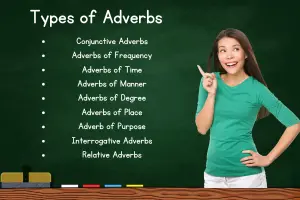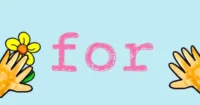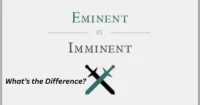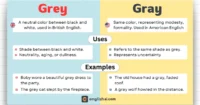What is a Reciprocal Pronoun? Definitions and Practical Examples
Published: 25 Oct 2024
Have you ever shared a special moment with a friend, like helping each other with homework or playing games together? That’s what reciprocal pronouns are all about! These particular words, like each other and one another, help us talk about how people do things for or with one another. They show the connection and teamwork between people, making our sentences feel warmer and friendlier.
In this article, we’ll explore reciprocal pronouns, see some fun examples, and learn how to use them to make our conversations even more exciting! Let’s get started and discover the magic of these remarkable words together!
What is a Reciprocal Pronoun?
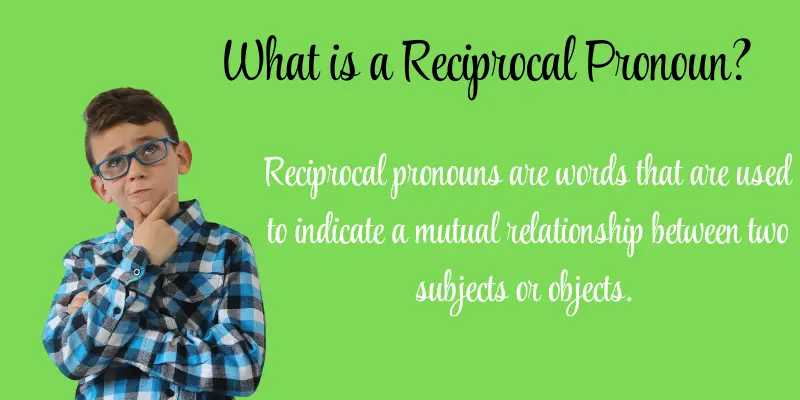
A reciprocal pronoun is a type of pronoun, a particular word that shows a mutual relationship between people. It’s like when friends help each other out or share something special! This means that one person does something nice for another, and then that person does something nice in return.
For example, in the sentence, Sara and Mia shared their toys with each other, it means that Sara let Mia play with her toys, and Mia let Sara play with hers. It’s all about friendship and having fun together!
Another example is the cats grooming one another. This means that each cat took turns bathing the other, just like how friends help each other look good.
In both cases, the people (or cats) who did nice things for one another felt happy because they were caring and kind! Isn’t it great how we can show love and support for our friends?
Examples
Here are some examples of reciprocal pronouns that show how we use them in sentences to express mutual relationships:
Each other
- My friends and I help each other with homework every day.
- The children played games with each other at the park.
- The two dogs wagged their tails at each other, excited to see one another.
One another
- The teammates encouraged one another during the final match.
- The family members surprised one another with gifts at the reunion.
- The neighbors looked out for one another during the storm.
These sentences illustrate how reciprocal pronouns express our beautiful connections with those around us!
How We Use Reciprocal Pronouns in Sentences
There’s something important about reciprocal pronouns that makes them unique! Unlike other pronouns, reciprocal pronouns only make sense when used as objects in a sentence. This means we don’t use them as the subject of a sentence.
For example, it’s correct to say Jack and Lily are best friends. They helped each other. Here, each other shows that Jack helped Lily, and Lily helped Jack too. They’re being great friends!
But Jack and Lily are best friends. Each other helped them, but it doesn’t make sense because each other can’t be the subject.
Reciprocal pronouns are different from reflexive pronouns, and they can’t be used in the same way.
For instance:
- Reciprocal pronoun: Max and Zoe played with each other. (This means Max played with Zoe, and Zoe played with Max. They truly enjoyed their time together!)
- Reflexive pronoun: Max and Zoe played by themselves. (This means Max played alone, and Zoe played alone. They weren’t playing together.)
You can also use each other and one another to show that something belongs to both people.
Here are some examples:
- The kids shared each other’s snacks. (This means they were sharing their snacks. Yum!)
- The friends promised to help one another’s families. (This means they will help each other’s families, showing how caring they are!)
Using reciprocal pronouns helps us express our friendships and connections clearly!
Conclusion
Reciprocal pronouns are a fantastic way to express our unique connections with others. Whether it’s through helping each other, playing together, or sharing snacks, these words—each other and one another—help us show the mutual care and teamwork that enrich our relationships. Understanding how to use reciprocal pronouns can make our conversations more meaningful.
So, next time you share a laugh with a friend or work together on a project, remember to use these pronouns to highlight the fantastic way you support one another. With reciprocal pronouns, we can celebrate the joy of friendship and connection in our everyday lives!
FAQs
What are reciprocal pronouns?
Reciprocal pronouns are special words that show a mutual relationship between people. They express how one person does something for or with another, like “each other” and “one another.”
Can you give examples of reciprocal pronouns in sentences?
Sure! Here are a few examples:
- My friends and I help each other with our homework.
- The classmates helped one another prepare for the big test.
How are reciprocal pronouns different from reflexive pronouns?
Reciprocal pronouns refer to mutual actions between two or more people (e.g., “They helped each other”). Reflexive pronouns indicate that the subject and object are the same person (e.g., “She helped herself”).
Where do we use reciprocal pronouns in sentences?
Reciprocal pronouns are usually used as objects in sentences. For example, “They looked at each other.” We don’t use them as the subject, like in “Each other smiled at them,” which is incorrect.
Can reciprocal pronouns show possession?
Yes! You can use reciprocal pronouns to indicate possession, like in the sentences:
- The students shared each other’s books.
- The countries agreed to respect one another’s traditions.

- Be Respectful
- Stay Relevant
- Stay Positive
- True Feedback
- Encourage Discussion
- Avoid Spamming
- No Fake News
- Don't Copy-Paste
- No Personal Attacks



- Be Respectful
- Stay Relevant
- Stay Positive
- True Feedback
- Encourage Discussion
- Avoid Spamming
- No Fake News
- Don't Copy-Paste
- No Personal Attacks

